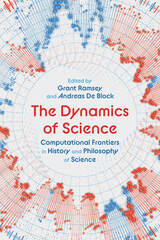207 start with D start with D

In Dying Green, award-winning educator Christine Vatovec offers an engaging study that asks us to consider the broader environmental sustainability of health care. Through a comparative analysis of the care provided to terminally ill patients in a conventional cancer ward, a palliative care unit, and an acute-care hospice facility, she shows how decisions made at a patient’s bedside govern the environmental footprint of the healthcare industry. Likewise, Dying Green offers insights on the many opportunities that exist for reducing the ecological impacts of medical practices in general, while also enhancing care for the dying in particular. By envisioning a more sustainable approach to care, this book offers a way forward that is better for both patients and the planet.

Markley interweaves chapters on science and science fiction, enabling him to illuminate each arena and to explore the ways their concerns overlap and influence one another. He tracks all the major scientific developments, from observations through primitive telescopes in the seventeenth century to data returned by the rovers that landed on Mars in 2004. Markley describes how major science fiction writers—H. G. Wells, Kim Stanley Robinson, Philip K. Dick, Edgar Rice Burroughs, Ray Bradbury, Robert Heinlein, and Judith Merril—responded to new theories and new controversies. He also considers representations of Mars in film, on the radio, and in the popular press. In its comprehensive study of both science and science fiction, Dying Planet reveals how changing conceptions of Mars have had crucial consequences for understanding ecology on Earth.

In Dying to Know, eminent critic George Levine makes a landmark contribution to the history and theory of scientific knowledge. This long-awaited book explores the paradoxes of our modern ideal of objectivity, in particular its emphasis on the impersonality and disinterestedness of truth. How, asks Levine, did this idea of selfless knowledge come to be established and moralized in the nineteenth century?
Levine shows that for nineteenth-century scientists, novelists, poets, and philosophers, access to the truth depended on conditions of such profound self-abnegation that pursuit of it might be taken as tantamount to the pursuit of death. The Victorians, he argues, were dying to know in the sense that they could imagine achieving pure knowledge only in a condition where the body ceases to make its claims: to achieve enlightenment, virtue, and salvation, one must die.
Dying to Know is ultimately a study of this moral ideal of epistemology. But it is also something much more: a spirited defense of the difficult pursuit of objectivity, the ethical significance of sacrifice, and the importance of finding a shareable form of knowledge.

The Dynamics of Migration and Settlement in Europe explores the causes and consequences of such massive changes in demography. Researchers at the IMISCOE–Network of Excellence (Immigration, Integration and Social Cohesion in Europe) bring together a wealth of theoretical and analytical research in this collection of essays addressing the many crucial questions that have arisen in the past two decades. Underlying these essays is a key concern for the healthy management of these new migration processes, as well as the eventual shape of the new societies that are just beginning to emerge.
International migration and the ensuing questions about integration continue to be subjects of intense debate, and this book will be welcomed among those involved in migration studies and international development.

Through a modified Kantian approach to epistemology and philosophy of science, this book opposes both Quinean naturalistic holism and the post-Kuhnian conceptual relativism that has dominated recent literature in science studies. Focussing on the development of "scientific philosophy" from Kant to Rudolf Carnap, along with the parallel developments taking place in the sciences during the same period, the author articulates a new dynamical conception of relativized a priori principles. This idea applied within the physical sciences aims to show that rational intersubjective consensus is intricately preserved across radical scientific revolutions or "paradigm-shifts and how this is achieved.

Millions of scientific articles are published each year, making it difficult to stay abreast of advances within even the smallest subdisciplines. Traditional approaches to the study of science, such as the history and philosophy of science, involve closely reading a relatively small set of journal articles. And yet many questions benefit from casting a wider net: Is most scientific change gradual or revolutionary? What are the key sources of scientific novelty? Over the past several decades, a massive effort to digitize the academic literature and equip computers with algorithms that can distantly read and analyze a digital database has taken us one step closer to answering these questions. The Dynamics of Science brings together a diverse array of contributors to examine the largely unexplored computational frontiers of history and philosophy of science. Together, they reveal how tools and data from automated textual analysis, or machine “reading,” combined with methods and models from game theory and cultural evolutionary theory, can begin to answer fundamental questions about the nature and history of science.

Dyslexia and Development presents the latest findings of neurobiological research, which suggest a link between seemingly minor brain abnormalities and epilepsy, learning disorders, and autism. The authors focus on the plasticity of the developing nervous system and the possible role of subtle early brain injury in the emergence of these disorders, particularly dyslexia.
The distinguished contributors to this volume examine epidemiological and clinical issues that may make the developing brain more vulnerable to environmental and genetic influences, which can in turn lead to abnormal brain plasticity and behavior. Although major forms of brain malformation have been clearly associated with functional deficits, mild forms have historically been ignored or trivialized; this book supports the hypothesis that several types of such malformation reflect brain injury during critical stages of development, and also the premise that more and more disturbances of thought and behavior stem from abnormalities of brain organization.
Neurologists and neurobiologists, psychologists, psycholinguists, psychiatrists, and special educators will find here a guide to more enlightened understanding and more effective treatment of dyslexia. In fact, the book emphasizes the positive aspect of the neurobiological deviation that dyslexic brains seem to show, along with the observation that people with such brains are often quite creative and extraordinary, rather than handicapped. In turn, the revised consideration of dyslexia should lead to more serious attention to other disturbances of childhood behavior as problems in developmental neurology, as well as to a deeper analysis of possible neurological bases for individual differences in normal behavior and personality.
READERS
Browse our collection.
PUBLISHERS
See BiblioVault's publisher services.
STUDENT SERVICES
Files for college accessibility offices.
UChicago Accessibility Resources
home | accessibility | search | about | contact us
BiblioVault ® 2001 - 2024
The University of Chicago Press









